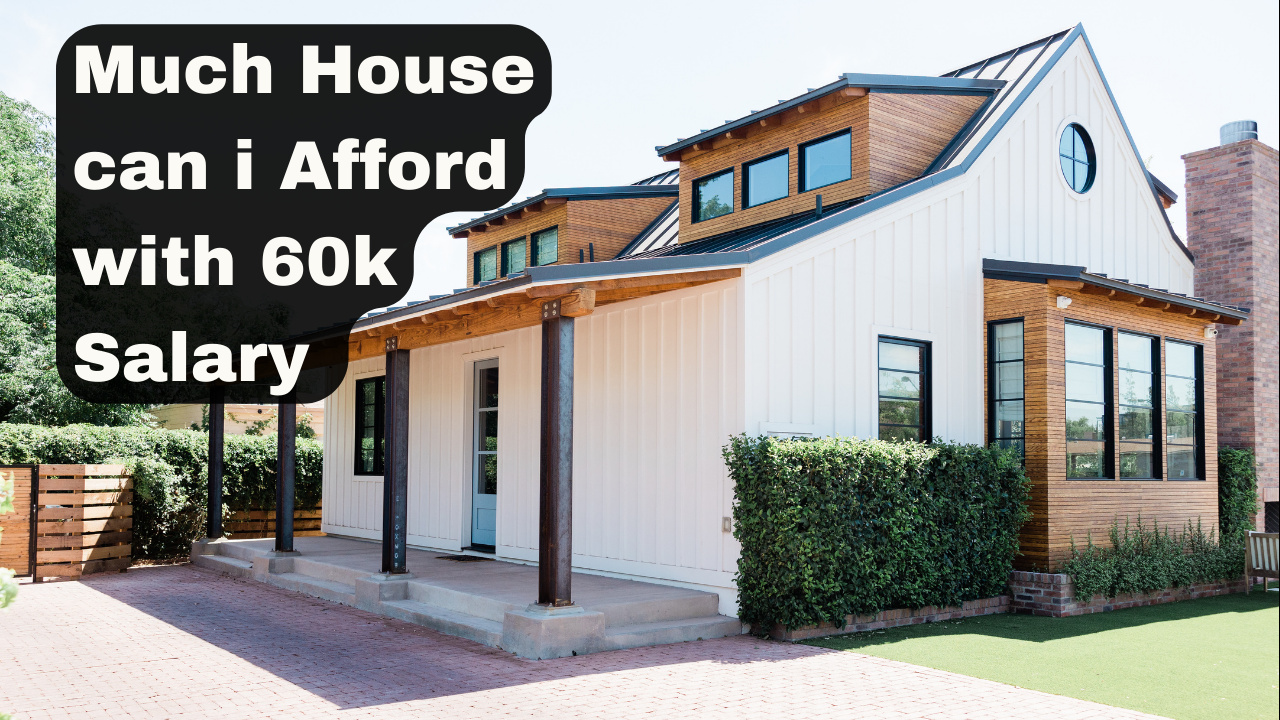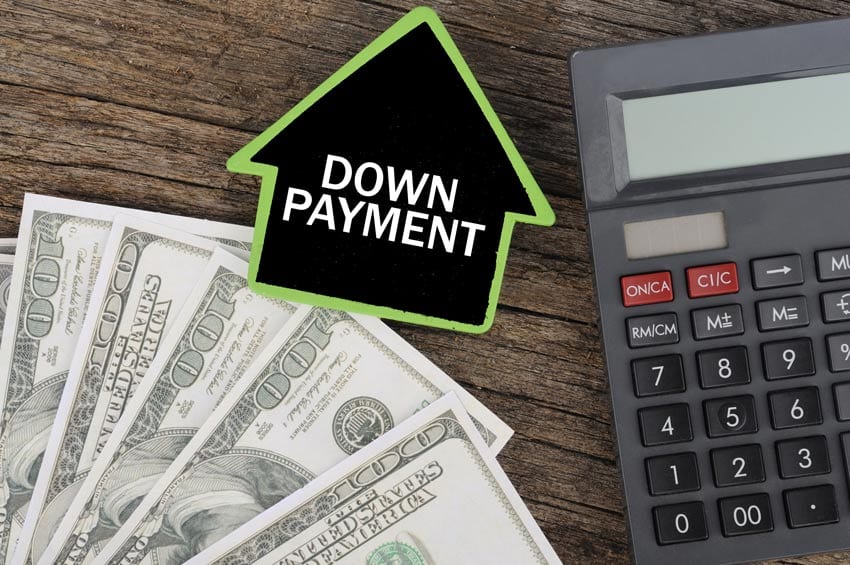How Much House Can I Afford With A $60,000 Salary Per Year?
Curious how much house you can afford with a $60,000 salary? Calculate your monthly mortgage payment and learn how to get the most out of your home buying budget.

Morgan Barrons
Nov 06, 2023
One of the most important financial choices that most individuals will ever make is purchasing a home. Prior to starting your property hunt, it's critical to determine how much you can afford so as to avoid going overboard and getting into debt.
Affordability is influenced by several elements, such as your debt-to-income ratio (DTI), down payment, interest rate, and other monthly costs. All of these considerations should be taken into account when figuring out how much house you can afford.
In-depth discussions of the major variables influencing affordability will be covered in this article, along with advice on how to determine your affordability. We will also go over how to choose the ideal house for your budget and get pre-approved for a mortgage.
Here are some of the key factors that affect affordability:
- Debt-to-income ratio (DTI) -Your DTI is the percentage of your monthly income that goes towards paying debt. Lenders typically require a DTI of no more than 36% for home buyers.
- Down payment -A down payment is the amount of money you pay upfront for a home. A larger down payment will reduce your monthly mortgage payment.
- Mortgage rate -The mortgage rate is the interest rate you will pay on your mortgage loan. A lower mortgage rate will also reduce your monthly mortgage payment.
- Other monthly expenses -Other monthly expenses, such as car payments, credit card payments, and student loan payments, will also affect how much house you can afford.
You may start making plans for your future home purchase and have a better sense of how much you can afford to buy by being aware of these things.
What Is DTI And Why Is It Important?
A financial indicator called the debt-to-income ratio (DTI) calculates how much debt you have in relation to your income. It is computed by dividing your monthly gross income by the total amount of debt you are paying down each month.
Since DTI is one of the main criteria that lenders use to decide how much money they are ready to offer you for a mortgage, it is crucial for house buyers to understand. The DTI offers lenders a sense of how much of your income is already going toward debt payments, which helps them determine whether you will be able to afford your monthly mortgage payments.
Examples Of Different Types Of Debt That Are Included In DTI
Different types of debt that are included in DTI include:
- Credit card debt
- Student loan debt
- Car payments
- Personal loans
- Alimony or child support payments
- Mortgage payments on other properties
Using DTI To Determine Mortgage Borrowing Capacity
For house purchasers, lenders usually have a maximum DTI ratio that they are prepared to allow. Depending on the lender and the kind of mortgage loan you're looking for, there are different maximum DTI ratios. For instance, the maximum debt-to-income ratio (DTI) for conventional loans is often 36%, but the maximum DTI ratio for FHA loans is 43%.
You could not be granted a mortgage if your DTI ratio exceeds the maximum allowed by the lender. Alternatively, your approval can be limited to a lesser loan amount or a mortgage with a higher interest rate.
Calculate Your DTI
To calculate your DTI, simply add up all of your monthly debt payments and divide the total by your gross monthly income.
For example, if you have the following monthly debt payments:
- Credit card payments - $300
- Student loan payments - $200
- Car payments - $100
- Personal loan payments - $50
And your gross monthly income is $5,000, then your DTI would be calculated as follows:
- DTI= (Total monthly debt payments / Gross monthly income) * 100
- DTI= ($650 / $5,000) * 100 = 13%
Tips For Improving Your DTI
If your DTI ratio is higher than you would like, there are a few things you can do to improve it:
- Pay down your debt. The more debt you pay off, the lower your DTI will be.
- Increase your income. Getting a raise at work or starting a side hustle can increase your income and lower your DTI.
- Get a co-signer. If you have a good credit score, you may be able to get a co-signer for your mortgage. This can help you qualify for a mortgage with a lower interest rate or a larger loan amount.
Understanding DTI is crucial for prospective homeowners. Knowing your DTI and how it impacts your mortgage eligibility can help you prepare for your future home purchase and make wiser financial decisions.
What Is A Down Payment And Why Is It Important?
The amount of money you spend for a house up front is called a down payment. Usually, it is stated as a percentage of the cost of the house. For instance, you would pay $40,000 up front if you were purchasing a $200,000 house and making a 20% down payment.
For those purchasing a house, a down payment is crucial since it lowers the total amount of money needed to be borrowed for a mortgage. Additionally, it demonstrates to lenders your seriousness about purchasing a property and your ability to pay for it.
Your monthly mortgage payment will be less the higher your down payment. This is as a result of you taking out less loans from the lender. A bigger down payment might also make it easier for you to get approved for a mortgage with a lower interest rate.
Different Types Of Down Payments
There are two main types of down payments: cash down payments and gift down payments.
- Cash down payments -A cash down payment is a down payment that comes from your own personal savings.
- Gift down payments -A gift down payment is a down payment that comes from a gift from a family member or friend.
Down Payment Impact On Monthly Mortgage
Your monthly mortgage payment will not be impacted by the kind of down payment you make. Your monthly mortgage payment will, however, be impacted by the amount of your down payment. Your monthly mortgage payment will be less the higher your down payment.
Save For A Down Payment Tips
Here are a few tips on how to save for a down payment:
- Create a budget and track your spending. This will help you identify areas where you can cut back on spending and save more money each month.
- Set a savings goal. Decide how much money you need to save for a down payment and set a deadline for reaching your goal.
- Open a high-yield savings account. This type of savings account typically offers higher interest rates than traditional savings accounts, which can help you grow your savings faster.
- Automate your savings. Set up a recurring transfer from your checking account to your savings account each month. This will help you save money without even having to think about it.
- Consider getting a side hustle. Earning extra money on the side can help you reach your down payment goal faster.
Although saving for a down payment might be difficult, the effort will eventually pay off. You can save thousands of dollars over the course of your loan by being eligible for a reduced mortgage payment and interest rate if you have a down payment.
Get Pre-approved For A Mortgage
When you are pre-approved for a mortgage, it indicates that a lender has examined your financial records and decided to give you a certain amount of money to purchase a property. Usually, this procedure include filing a mortgage application and producing proof of your earnings, assets, and obligations.
Getting pre-approved for a mortgage before you start shopping for a home is important for several reasons:
- It shows sellers that you are a serious buyer and that you have the financial resources to afford the home you are interested in.
- It gives you an idea of how much money you can borrow and what your monthly mortgage payment will be.
- It can help you negotiate for a better price on a home.
- It can help you move quickly on a home purchase, which can be important in a competitive market.
Steps Involved In Getting Pre-approved For A Mortgage
The steps involved in getting pre-approved for a mortgage may vary depending on the lender, but they typically include the following:
- Complete a mortgage application -This will involve providing information about your income, assets, debts, and employment.
- Provide documentation to support your application -This may include pay stubs, tax returns, bank statements, and investment statements.
- Get a credit check -The lender will pull your credit report to assess your creditworthiness.
- Meet with a loan officer -The loan officer will review your application and documentation and answer any questions you have.
- Get pre-approval -If the lender is satisfied with your application and documentation, they will issue you a pre-approval letter. This letter will state the maximum amount of money you are pre-approved to borrow and the interest rate you are likely to receive.
Get The Best Possible Mortgage Rate Tips
There are a few things you can do to get the best possible mortgage rate:
- Shop around and compare rates from multiple lenders.
- Get pre-approved for a mortgage before you start shopping for a home. This will give you an idea of what rates you are eligible for.
- Have a good credit score. The higher your credit score, the better interest rate you are likely to receive.
- Make a larger down payment. The larger your down payment, the less money you need to borrow and the lower your monthly mortgage payment will be.
- Consider getting a shorter loan term. Shorter loan terms typically have lower interest rates than longer loan terms.
You may save money on your home purchase and improve your chances of obtaining the best mortgage rate by paying attention to these pointers.
Find The Right Home For Your Budget
Factors To Consider When Choosing A Home
There are a number of factors to consider when choosing a home, including:
- Location -Consider the neighborhood, proximity to work, schools, and other amenities, and the quality of life in the area.
- Size -Consider how much space you need now and in the future.
- Amenities -Consider the amenities that are important to you, such as a yard, a garage, and a certain number of bedrooms and bathrooms.
- Price -Consider your budget and how much you can afford to spend on a monthly mortgage payment.
Negotiate With Sellers And Avoid Overpaying For A Home
Here are some tips on how to negotiate with sellers and avoid overpaying for a home:
- Do your research -Know the market value of the home you are interested in before you make an offer. You can use online tools or hire a real estate appraiser to get an estimate of the home's value.
- Be prepared to walk away -If you are not comfortable with the seller's asking price, be prepared to walk away from the negotiation. This shows the seller that you are serious about getting a good deal.
- Be flexible -Be willing to negotiate on different aspects of the offer, such as the price, the closing date, and the repairs that the seller will make before the sale closes.
- Get everything in writing -Once you have reached an agreement with the seller, be sure to get everything in writing. This will protect you in case there are any disagreements down the road.
Additional Tips For Finding The Right Home For Your Budget
- Work with a real estate agent -A real estate agent can help you find homes that meet your needs and budget. They can also negotiate with sellers on your behalf.
- Be patient -It may take some time to find the right home for you. Don't rush the process and make an offer on a home that you are not completely in love with.
You can select the ideal house for your budget and prevent overpaying for a property by using the advice in this article.
Other Factors To Consider When Buying A Home
When purchasing a house, there are a number of additional elements to take into account—such as property taxes, homeowners insurance, and maintenance costs—that may have an impact on your ability to finance it in addition to those covered in the preceding sections.
Property Taxes
An annual tax based on the value of your house is called property taxes. Public services like roads, schools, and libraries are funded in part by property taxes, which are normally paid to the local government.
Your home's worth and location will determine how much property taxes you must pay. Properties with greater property values and in more sought-after neighborhoods will often pay higher property taxes.
Homeowners Insurance
A sort of insurance called homeowner's insurance will shield you financially if your house is damaged or if someone gets hurt on your land. Typical coverage for homeowners insurance includes storm damage, theft, vandalism, and fire.
Your location, the kind of coverage you select, and the size and value of your house will all affect how much you pay for homeowners insurance.
Maintenance Costs
Numerous maintenance expenses, including snow removal, landscaping, grass care, and repairs, are associated with property ownership. The size, style, and personal preferences of your house will all affect how much money you spend on maintenance.
Tips On Budget For These Expenses
Here are some tips on how to budget for property taxes, homeowners insurance, and maintenance costs:
- Factor these expenses into your monthly mortgage payment -When you are calculating how much you can afford to spend on a monthly mortgage payment, be sure to factor in the cost of property taxes, homeowners insurance, and maintenance costs.
- Set up a separate savings account for these expenses -This will help you save money each month so that you have the funds to pay for these expenses when they come due.
- Shop around for the best deals on homeowners insurance -Homeowners insurance rates can vary significantly from company to company. Be sure to shop around and compare rates from multiple companies before you purchase a policy.
By budgeting for property taxes, homeowners insurance, and maintenance costs, you can avoid any financial surprises after you buy a home.
Frequently Asked Questions
What If I Have High Debt?
If you have high debt, it will be more difficult to qualify for a mortgage and you may need to make a larger down payment. You should also be prepared for a higher interest rate. If you are struggling to manage your debt, you may want to consider working with a credit counselor to create a debt management plan.
What If I Don't Have A 20% Down Payment?
As mentioned above, there are other options available for buyers who don't have a 20% down payment, such as FHA loans, VA loans, and USDA loans. These loans allow for down payments as low as 3.5%. However, you may need to pay PMI if your down payment is less than 20%.
What If I Have Bad Credit?
If you have bad credit, you may still be able to qualify for a mortgage, but you will likely pay a higher interest rate. You may also need to make a larger down payment. There are credit-builder loans and programs available to help you improve your credit score.
Conclusion
Purchasing a home is one of life's most fulfilling experiences, but it also requires a significant financial investment. Finding and purchasing the house of your desires may be made more likely by knowing the elements that determine your affordability and by heeding the advice in this article.
Recall that it is critical to be realistic about the amount of home you can afford. Take into account every monthly expenditure you have, such as your mortgage payment, utilities, internet and cable, homeowners insurance, PMI, property taxes, insurance on your house, landscaping and lawn care, and HOA dues (if any).
Prior to beginning your house search, it's crucial to obtain a mortgage preapproval. This can help you determine the maximum amount you may borrow as well as the monthly payment amount for your mortgage.
After receiving a mortgage preapproval, you may begin your property search. When creating your budget for your new house, don't forget to account for the cost of homeowners insurance, property taxes, and upkeep.
A house that you can afford and enjoy for many years to come may be purchased with proper planning and budgeting.

